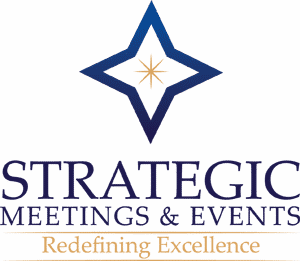It’s All Procurement, All The Time
New York — How corporate procurement programs are changing the meeting-planning landscape dominates the discussion at most every industry event these days.
So as could have been expected, procurement, meetings data consolidation, strategic meeting planning, and return on investment were the buzzwords at this year’s MeetingWorld, held late last month at the Grand Hyatt New York.
At one session, Jack Phillips, chairman of the ROI Institute and the industry’s current ROI guru, presented his method for quantifying the return on investment in meetings.
At another, corporate planner Camille Paluscio and independent planners Elizabeth Zielinski and Christy Lamagna talked about ways independent planners can forge preferred-supplier relationships with companies.
 Procurement and strategic meetings management also played front and center at the keynote general session, featuring high-powered panelists Fred Shea, vice president of sales for Hyatt Hotels; Carol Lynch, sales VP for Starwood Hotels; Colin Rorrie Jr., CEO of Meeting Professionals International; Richard Del Colle, a meetings supplier (read: procurement) manager for Hewlett-Packard; and Jay Roseman, VP of Corporate Meeting Solutions for American Express Business Travel.
Procurement and strategic meetings management also played front and center at the keynote general session, featuring high-powered panelists Fred Shea, vice president of sales for Hyatt Hotels; Carol Lynch, sales VP for Starwood Hotels; Colin Rorrie Jr., CEO of Meeting Professionals International; Richard Del Colle, a meetings supplier (read: procurement) manager for Hewlett-Packard; and Jay Roseman, VP of Corporate Meeting Solutions for American Express Business Travel.
All the industry talk about corporate meetings procurement programs is matched by talk in the executive suites — that is, a lot of talk and relatively little action so far, according to Dick Zeller, who at an Executive Track session presented a detailed analysis about how corporate planners can leverage procurement procedures to their advantage.
“Only a small number of companies are actually doing it, but many are seriously talking about it,” said Zeller, who helps companies establish enterprise-wide meetings procurement programs as vice president of consolidation for Maritz Travel Company.
More companies are turning talk into action, however, so planners better get with the procurement program before the program gets them, said Zeller.
That’s a message industry leaders are preaching hard, including Zeller’s boss, Christine Duffy, Maritz CEO and current MPI chairwoman. For years, Duffy has proselytized about the career benefits of strategic planning.
Zeller was very upbeat about how procurement practices can help planners win a seat at the executive table, where the early — and most important — decisions about meetings and company-wide meetings programs are made.
But when questioned about procurement’s downside, Zeller acknowledged that it can be a pain, especially in the beginning but also if it’s done poorly.
For example, planners may have to budget meetings differently than they are accustomed to doing and they may no longer be allowed to sign contracts.
Moreover, procurement can create greater bureaucracy: more levels of approval, more paperwork. And that can mean delays in signing contracts with hotels, which in turn can mean losing tentative holds on space.
If nothing else, delays mean a lot of hassles for the planner, who has to explain to the sales rep why she really wants to hold her company’s meeting at the rep’s property but hasn’t yet returned the contract. It also means a chain-reaction of delays. Why arrange for destination-specific or property-specific services if you’re not absolutely sure your group is actually going to that destination or property?
In the keynote session, Shea said that Hyatt salespeople were already seeing delays in companies booking meetings because the approval process has become multi-layered.
— Marshall Krantz
At the Executive Track session about meetings procurement tends, Zeller delivered this message to corporate planners: Fear not your company’s procurement department — it can be your friend.
Procurement departments can help planners develop a company-wide meetings procurement program, a complicated endeavor that can take three to four years in a large company, according to Zeller.
“Procurement helps break down the process into bite-size pieces,” he said. “It’s helpful if you in the meetings organization understand this. If procurement hasn’t come to you yet, you should go to procurement.”
Zeller said procurement officers often look to professional meeting planners “to be the subject-matter experts and to make the final decisions.”
He also said that a couple of factors within Corporate America are helping planners gain a seat at the executive table, where strategic decisions about meetings are made.
One, the federal Sarbanes-Oxley law is forcing greater fiscal accountability on senior management; and two, senior management is telling division and department heads to get greater cost efficiencies through best procurement practices, which was a theme of the keynote general session.
As an example of the latter, Zeller said the sales department of a Maritz client was told to hold next year’s meetings budget to this year’s level despite rising hotel room rates. The sales executives turned to the company’s meeting planners and procurement officials for help.
— Marshall Krantz
Survival strategies in a corporate environment that continues to squeeze greater cost efficiencies out of every aspect of a company’s operations, including meetings, dominated the discussion at the keynote general session.
Jay Roseman, vice president in charge of managing meetings for the clients of American Express Business Travel, said companies will place more value on professional planners who contribute to strategic objectives while the role of occasional planners will diminish.
 “The profession of meeting planning is a very safe place as long as meeting professionals are willing to adapt to a different way of working and take on a different type of responsibility,” Roseman said.
“The profession of meeting planning is a very safe place as long as meeting professionals are willing to adapt to a different way of working and take on a different type of responsibility,” Roseman said.
In the pursuit of a strategic planning role, Rich Del Colle, meetings and events supplier manager for Hewlett-Packard, said planners must learn technology, such as customer relationship management software, that allows companies to closely track and market to their customers.
“You have to get more involved with the technology that is out there,” he said.
But Dr. Tom McDonald, facilitator of the panel discussion, responded, “That’s easier said than done. I’ve talked to a lot of planners, and it’s always about delegating. ‘Who am I going to delegate to? If I don’t do it, no one else will.’ ”
— Marshall Krantz
On the second day of MeetingWorld, after attendees reluctantly dined on steaming Manhattan clam chowder — temperatures reached the 90s in New York — luncheon speaker James Surowiecki presented his case: that a random group of people, under the right circumstances, collectively possesses enormous intelligence.
Surowiecki, a columnist for The New Yorker and author of the best-seller “The Wisdom of Crowds,” told the story of Francis Galton, a British scientist, and his visit to a county fair. Galton was intrigued with a contest in which people were asked to guess the weight of an ox. Each member of the crowd made a guess, and while individual answers varied widely, the average of all the answers was off by only one pound.
“Under the right circumstances,” Surowiecki added, “the group intelligence is actually greater than the smartest person in the group.” The “right circumstances” include having a diverse group; that individuals make their observations independently of one another’s input; and that the group’s collective judgment can be aggregated toward solving the problem at hand.
— Antoinette DeNise
Even more surprising than finding some hoteliers in the “Tips for Better Contracts” session — since sellers at industry events usually focus on the trade show floor —was the altruistic spirit that these hoteliers displayed. Several of them offered up suggestions that could help planners.
Dan Paradiso, group sales manager at the Roosevelt Hotel in New York, recommended that meeting planners base their attrition clause on the “lowest” room rate instead of “average.” Using the average takes into account the pick-up on the group’s higher-priced accommodations, such as suites, he said.
Another hotelier warned buyers against making conservative room-block guarantees because “the hotel then has more justification for booking a group on marketplace guarantees because “the hotel then has more justification for booking a group on top of you, and will do so,” he said.
— Rayna Katz
Hyatt’s Shea was a dominant presence at Meeting World, participating in several forums, and he had a lot of knowledge and wisdom to dispense. A couple of nuggets:
“Yield management has arrived in meeting rooms. You’re going to start seeing price changes on food in meeting rooms on different days and items. In other words, given demand, chicken may not cost the same price on Friday as it does on Tuesday.”
And of the four years that he spent working as a meeting planner, some time ago, during a hiatus from Hyatt, he said, “It was a hard job. I went back to the easy side.”
— Rayna Katz
In this age of rampant corporate espionage and identity theft, it’s surprising how trusting planners can be. That became clear at “You Are Being Watched: Privacy Implications for Meetings,” a session facilitated by attorney Kelly Franklin Bagnall and meetings management consultant Joan Eisenstodt.
Participants were presented with scenarios involving hotel lists and camera phones, and, from the discussion that arose, it emerged that planners often broadcast sensitive information about their attendees without considering the liability issues at stake.
In the event of an attrition dispute, for example, a planner may hand over the registration list to the hotel without receiving assurances that guests’ privacy will be respected. And there is rarely a clear policy regarding camera phones on trade show floors.
Bagnall, a partner with Dallas-based law firm Brown McCarroll LLP that frequently represents hotels, advised planners to insert clauses defining their expectations for privacy and confidentiality into their hotel contracts, since “personal expectation of privacy and legal expectation of privacy are two different things.”
Eisenstodt urged more awareness in general, as technologies such as Wi-Fi and RFID, which are gaining popularity in the meetings context, can also put privacy at risk.
“I tell people to always remove their name badges when not on-site at the meeting,” said Eisenstodt, “but RFID badges may broadcast your information without your knowledge.”
At the end of the session Eisenstodt observed that privacy “is an issue that will continue to grow and change as technology and government become more intrusive.”
— Terri Hardin
The ins and outs of Internet connectivity can be overwhelming, but Mary Ann Pierce, president of New York-based MAP Digital, gave valuable tips on how to avoid being overcharged and ensuring that groups get what they need in the session “Hooking Up: Taming the Wild World of Internet Connectivity.”
 Pierce encouraged planners to learn what bandwidth a property offers. If a venue has DSL, be sure to ask about upload speeds and download speeds, which vary tremendously and can cripple programming. When in doubt, it’s often easier, and frequently cheaper, to simply have additional access installed.
Pierce encouraged planners to learn what bandwidth a property offers. If a venue has DSL, be sure to ask about upload speeds and download speeds, which vary tremendously and can cripple programming. When in doubt, it’s often easier, and frequently cheaper, to simply have additional access installed.
Planners should not be railroaded into sharing bandwidth with hotel rooms or administration offices, according to Pierce. “Bandwidth is finite; it’s not out there in the ether,” she said, so planners and attendees may end up with significantly less than they expected, and paid for, unless they learn to ask.
She also encouraged planners to negotiate IP address-related fees. Hotels often claim to have hard-and-fast rules and pricing, but planners should not assume that Internet fees and services are truly non-negotiable. Prior to an event, planners should speak with the IT director — the person who will really know what the property has in terms of Internet connectivity. At the event, the planner should have on hand the names and cell-phone numbers of tech contacts at the company that owns the high-speed Internet access circuits (hint: It’s probably not the venue). “It’s like playing Nancy Drew sometimes” to track down whomever you actually need to talk to, Pierce warned, but worth it to resolve conflicts quickly.
— Kinley Levack
The session “Choosing Speakers — Without Breaking the Bank” dispensed creative ideas for determining what speakers will resonate with the audience and landing one who, on paper, may seem to be out of your price range.
Marc Reede, president of Los Angeles-based Nationwide Speakers Bureau, advocated piggy-backing on other dates to save money. If you know a speaker will be in your area for an engagement, you may be able to secure him for nothing more than an additional night or two in a nice hotel. Reede said this works particularly well for bands, which likely have a slew of roadies, back-up members and other personnel.
Another suggestion of Reede’s is to infiltrate a motivational seminar or other event. If Lance Armstrong (who costs approximately $200,000 per event) will be speaking nearby, it may make sense to buy tickets to that event, and then have breakout sessions or other programming elsewhere.
Diane Goodman, president of Goodman Speakers Bureau in Windsor, Conn., advised attendees to take a look at what books their executives are reading, in order to gain insight into what is on their minds.
— Kinley Levack
Executive-level meeting professionals become what they are not so much from learning new things as by thinking in new ways. That was the approach psychologist and session leader Dr. Tom McDonald took in introducing MeetingWorld’s special Executive Track, urging attendees to conceive of new ways of doing things and educate higher-level executives that you’re the one to do them.
“In a sense, you’re re-educating your bosses,” said McDonald in “Managing Upward: Honing Your Skills As a Strategist,” “and not letting them define you and put that definition away in a desk drawer. The most innovative solution is to redefine the situation for yourself.”
Perhaps the most dynamic segment of McDonald’s session was a networking version of “speed dating.” McDonald asked the attendees to think of what they do that is already of strategic importance to their companies, and that they would be proud to share with others. Then, the attendees had five rounds of one-on-one interviews with each other, with one minute to talk about their own strategic skill, one minute to listen, and one minute to write down what they learned.
Twenty minutes later, everyone had five new strategic ideas to take away.
“People get the most from meetings in talking to their peers,” he noted. “It all goes into the mix of what they’re going to do next.”
— Christopher Hosford
In the session “Independent Planner Power: Building Relationships With — and Winning Business From — Corporations,” the panel told attendees that communication is the key to out-competing other independents, including large planning companies.
“Don’t talk so much about yourself and your qualifications,” said Christy Lamagna, president of Bernardsville, N.J.-based Strategic Meetings & Events. “Talk about how you can enhance their business and how well you understand their company and industry.”
Lamagna also emphasized the importance of learning to speak the language of procurement: “You need to be familiar with terms like economies of scale and leveraged spending,” she said.
Panelists encouraged attendees to make at least three new potential client contacts every working week, and to pass up no opportunities to do so. That goes even while waiting in line at the airport or seated next to someone on a plane. Another must: Maintain the highest ethical standards and fully disclose all commission arrangements. “A bad reputation is very expensive to correct,” warned Lamagna.
— Suzie Amer
“Special events is a team sport,” declared special-events producer Harith Wickrema at the opening of his interactive workshop on event marketing. And he proceeded to demonstrate just that, dividing the participants into groups of four, then giving them a scenario to work on.
Attendees quickly befriended one another as they brainstormed a proposal for a hypothetical special event, to be held during next year’s MeetingWorld, that would showcase one of three destinations — Philadelphia, New Orleans, or San Francisco — and be sponsored by that city’s CVB. Given a budget of just $15,000, participants came up with creative money-saving ideas, such as getting Napa Valley wineries to sponsor an event showcasing San Francisco wines, or tapping New York’s arts colleges for low-cost musicians, performers and setbuilders.
“It was a great exercise that got people talking, thinking, and sharing ideas,” said Hallia Baker, conference manager at Financial Executives International in Florham Park, N.J. “It really made you take a hard look at the thought process that goes into planning an event.
Tags: It’s All Procurement All The Time, Procurement, Event Planning, Event Planners, Strategic Planners, Strategic Events, Corporate Meetings, Corporate Events, Successful Meetings





